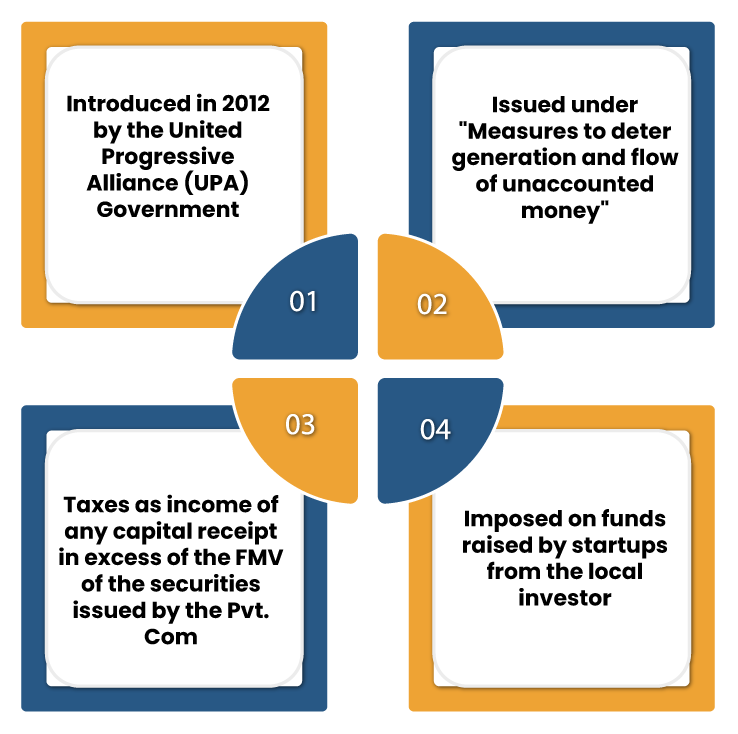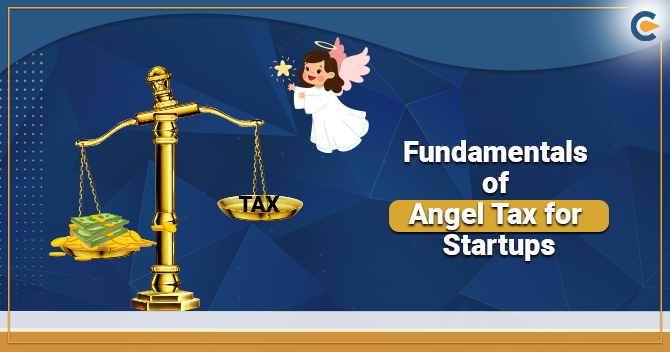BJP governance has a proven track record for promoting technology and industrial growth. In the continuation of such objectives, the Government had come up with another scheme called Startup India to create a business-friendly environment for the new companies and the investors. The scheme aims to promote new ideas and concepts coming from startups. The initiative does help many new businesses to grow in tandem with the angel investor through various benefits and supportive schemes. But angel tax still remains one of the biggest roadblocks for the growth of startups and the investors. Since the angel tax for startups has created a lot of buzz in the business fraternity in recent times, let us discuss some fundamental aspects of the same to understand it better.
Underlining the Impact of Angel Tax for Startups in the Present Scenario
High net worth individuals, angel investors, overseas funds, venture capitalists, almost every person or firm with investment potential have played a role in investing in multiple Indian startups. However, the ongoing Government under Modi’s leadership encourages the growth of startups in India.
After getting drastic response from the investor fraternity, the government had promised to waive off the Angle Tax as soon as possible. In 2019, the Indian Government had decided to make some mandatory changes to the angel tax to make it more conducive for startups.
Read our article:Benefits of Startup India Registration in India
What is an Angel Investment?
Angel investment is regarded as a form of initial funding done by the Angel investor to help startups build their business. Not all the companies have ample funds to start their business journey, and that’s where Angel investor comes into the picture. Their role is providing much-needed funds to startups that are struggling with procuring adequate capital to kick start their business operation. Such an investor examines the feasibility of the business idea of different startups and then starts investing accordingly. Such investments are made against the equity or convertible debt, the return of ownership of the startups.
What is an Angel Tax for Startups?
Angel Tax for Startups is generally referred to as the income tax payable on investment procured by the unlisted companies through the issuance of shares where the share price is seen in excess of FMV (Fair Market Value) of the shares sold. The excess realization is considered as income & taxed accordingly. Investment from overseas investors & venture capitalist funds does not come under the regime of this tax structure.


What is the Fundamental Issue with Angel Tax for Startups?
The primary issue with this tax is that it is levied only when the investment comes from the local investors. This acts as a major deterrent to investors who are interested in investing more money for the sake of higher return. Besides, the higher taxable rate makes this tax structure unfavorable for the growth of startups.
Rate of Interest under Angel Tax for Startups
Angel Tax for Startups is imposed at the max marginal rate of 30%. This particular tax rate becomes a headache for investors and the receiver as they lose 1/3 of the investment in taxes.
Why Angel Tax for Startups is Deterrent to the Business Fraternity and Investors?
A few reasons why startups are not in favor of angel tax are as follows:-
- The process that firms use for the calculation of their market value varies a lot from the Government’s method. The Government often put various essential factors out of the equation while calculating the company’s market value, which eventually leads to substantial price variations. This further forced the concerned parties to pay higher taxes than usual.
- Under Angel tax, the startups end up contributing a significant part of their investment towards taxes. Furthermore, it is also turn out to be disruptive for the industry’s growth. The stringent tax rate under this tax structure discourages investors from disbursing big funds to small firms. Angel tax has hampered the development of the startups, leaving the enthusiastic business owners dispirited.
- After getting negative feedback from the investment community, India’s Government[1] has finally made some relevant amendments to the laws to make the tax structure less stringent to entrepreneurs and investors.
What Amendments did the Indian Government made to Angel Tax for Startups?
Following are the changes made by the Indian Government to control this chaotic situation:
- Companies that completed ten years of their service life from their registration date would be deemed startups. Earlier, this limit was capped at seven years. It permits the startup to avail tax exemption as per the IT laws for the additional three years.
- The entity will continue to serve as startup if it does not reap a turnover of more than 100 crores in any financial year. Previously the turnover limit was set at Rs 25 crore. This enables startups to thrive even more.
- The IT Department issues a notice regarding the waiver of angle tax for the startups, provided they satisfied the specific conditions.
What are the Conditions to Get Exempt from Angel Tax?
Following are the conditions that the startups should meet to avail exemption regarding the angel tax:
- The paid-up capital & the firm’s share premium must not surpass the max- limit of Rs 10 crore after the issuance of the shares.
- The startup must seek assistance from certified merchant bankers for the calculation of the market value.
- The mini. net worth of the investor should not be less than Rs 2 crore. Furthermore, the investor’s income in each of the preceding three years should not be less Rs 50-lakh. If a person ensures conformity with such requirements, then only he/she qualifies as an angel investor.
Concluding Words
Although the change described above comes as a relief to startups and young entrepreneurs, the Government has many more issues to fix to ensure the seamless growth. Heavy taxation act as barrier for the development of the startups as well as the angel investors. The startup community is anticipating further deduction in the tax slab from the government in the upcoming years.
Read our article:Process of Startup India Registration: A Step by Step Guide











